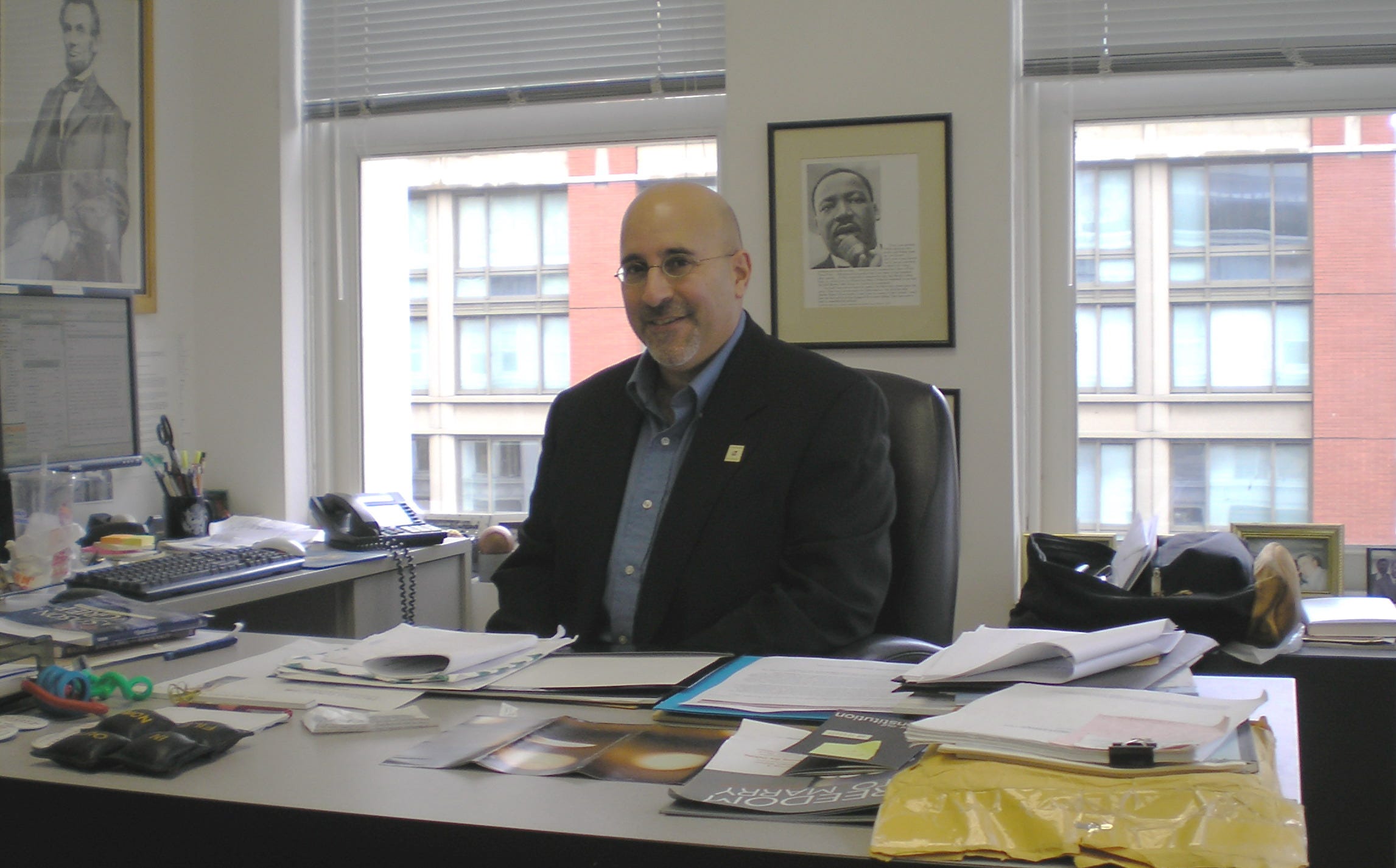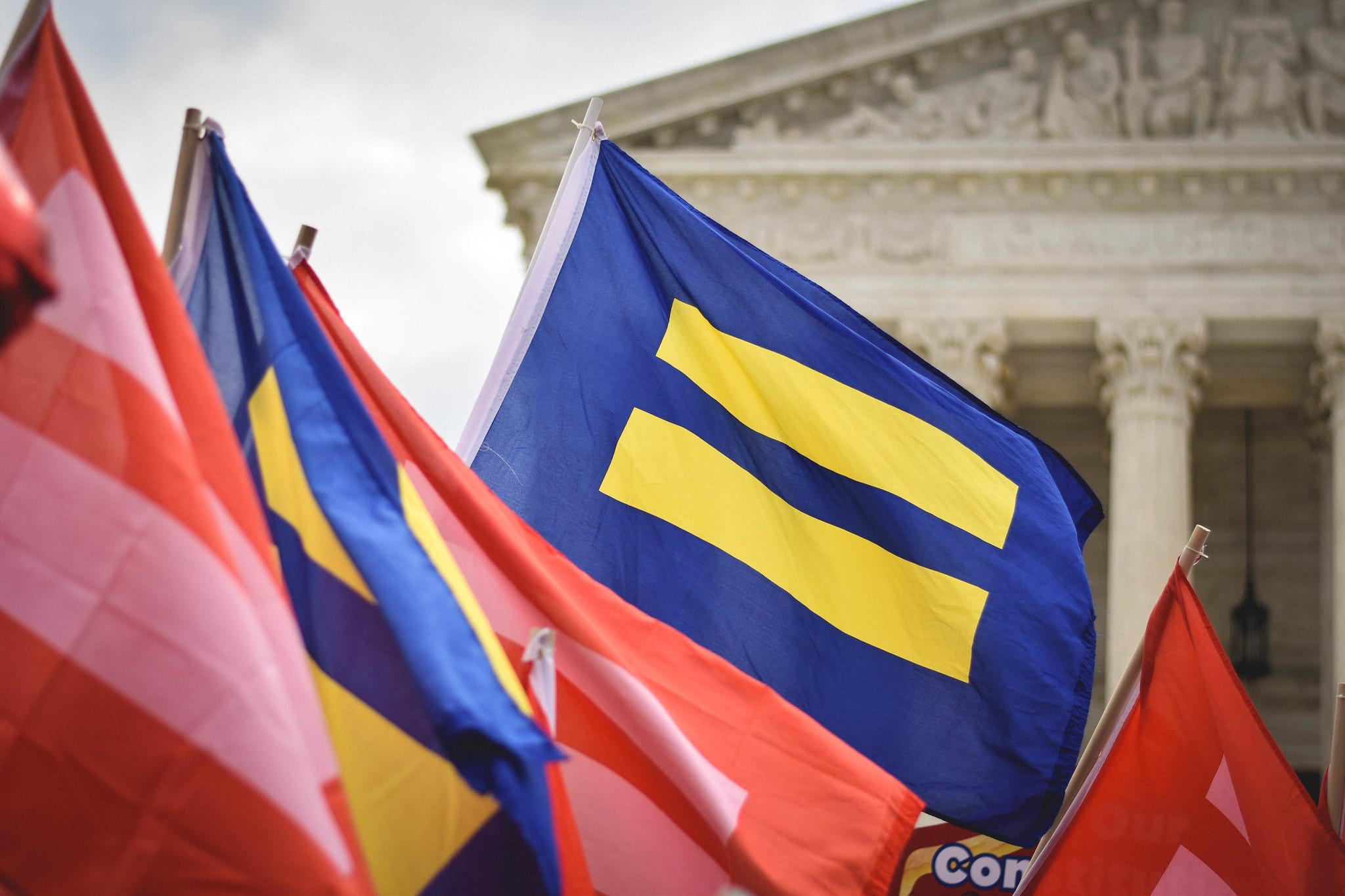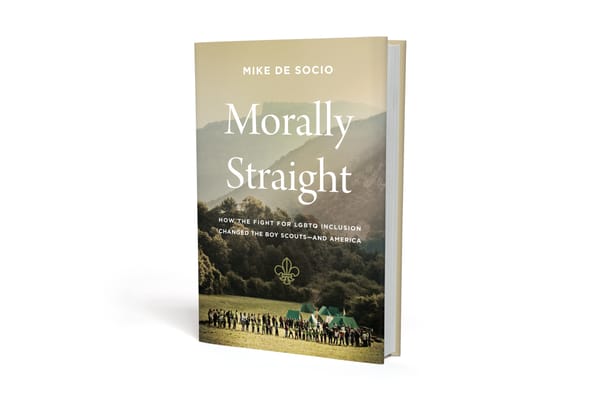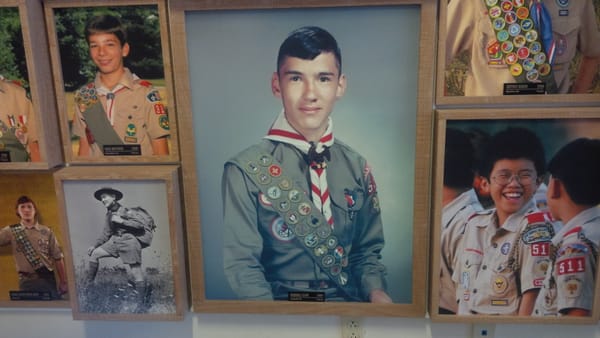Winning inclusion in America's most important institutions
Sasha Issenberg, author of a new book on same-sex marriage, talks to me about how gay activists convinced a majority of Americans to let them into the most important institutions of American life.
Good morning! If you’re receiving this email, it means you’re one of my new paid subscribers. Thank you for supporting my work! This is the first of your monthly deep-dives. I hope you enjoy it.
When the Supreme Court made marriage equality the law of the land in 2015, I had barely begun to learn about the LGBTQ civil rights issues of our time. I had just come to realize I was queer myself, and from my liberal college campus in Boston, same-sex marriage rights seemed inevitable, even obvious.
But as I read, “The Engagement: America's Quarter-Century Struggle Over Same-Sex Marriage,” it became very clear to me that nothing about that decision was inevitable. Sasha Issenberg, author of this new book, goes back to the 1990s to show how an issue that was once considered fringe, even among gay rights activists, became a landmark civil rights victory.
I spoke with Issenberg to learn more about that story and its many parallels with the fight for inclusion in the Boy Scouts of America.
This interview has been edited for length and clarity.

At the beginning of your book, the push for gay marriage is still seen broadly as a “cultural side-show” by most of the country. What changed for it to become more of a serious civil rights battle?
The Massachusetts court ruling in November, 2003, and then six months later in May of 2004, when gay and lesbian couples [were] able to legally marry for the first time in American history, fundamentally changed this. It became a real thing. It wasn't this, “let's debate the abstraction.” There weren’t a lot of people who really thought this would happen. And Massachusetts changed that, and it changed it in a number of ways. Now you actually have this institution that has included new people, it's a real thing.
Some part of the story of marriage is, what starts as this very local fight in Hawaii courts becomes a national issue and then a federal issue and then a constitutional issue. And 2004 is where that really flowers and it becomes hard not to treat this as an urgent policy question that has gotten the attention, not only of Congress through the Defense of Marriage Act, but now the president is making a serious effort to amend the U.S. Constitution to deal with this, which is like, okay this is real, we're not amending the constitution to un-cancel Dr. Seuss.
One of the things I was surprised to read was how much the judges in some of those early court cases relied so much on the Bible, rather than the law. And that happened in some of the early Boy Scout cases too. Why do you think judges felt empowered to do that?
In 1986, the Supreme Court upheld state sodomy bans — criminalizing private sexual acts between consenting adults on the basis that states could impose moral standards on what people did in private. And so on the question of where moral standards come from, the Supreme Court basically sanctioned, in the mid-eighties, that states could use biblical values as a reason to criminalize certain types of private activity. Part of it was that there were cues from the top judiciary that moral disapproval was a valid basis on which to make laws like this.
The other thing is that, at the core of it, there's a central definitional question. And the definitional question is what is a marriage, right? What did legislators mean when they wrote, “two people can get married,” in places where they didn't specify the gender? Was that understood [to mean one man and one woman], because marriage everywhere is understood to mean that? And then the other question is, is it discriminatory to exclude a category of people from marriage?
So I don't think it was surprising that in this quest to kind of wrestle with the definition and the core of the institution of marriage, that some people would say, okay, let's go look to the sources of knowledge about how the family is structured, and the Bible is going to be part of that.

I also want to talk about Evan Wolfson. He represented James Dale during the legal battle with the Boy Scouts that ended up in the Supreme Court, and also became a major advocate for gay marriage. And it was interesting to read that Wolfson had to convince Lambda Legal to fight for marriage, because he also had to convince them to take Dale’s case. What do you think motivated Wolfson to pursue these unpopular battles?
There was a big cultural debate between liberationists and assimilationists within the LGBT community, certainly post-Stonewall. On one side of this debate, you had had people who were saying, gays and lesbians have created their own institutions and sexual mores and values that stand not just apart from, but often in opposition to, mainstream American culture as it was understood at the time. And the goal of gay and lesbian movements should be to have the legal freedom to remake the world in our image and our values. Then there are people who said that the goal of a political-legal movement should be to win inclusion and to win full citizenship. And that means acceptance and inclusion in all existing institutions. And those institutions tend to be — the big ones — tend to be pretty conservative. So you think about not just marriage and the Boy Scouts, but also the military.
Evan was on the assimilationist side of a lot of these debates, because he argued — not alone, but often he was the loudest and built his career around this more than anybody else — that you're never going to win full inclusion and full citizenship for sexual minorities if you do not win inclusion in the kind of enduring, symbolically resonant institutions of American life.
I think he would argue some version of: If you can show the big mass of straight America, we want to get married for the same reasons everybody else wants to get married; we want our kids to be in the Scouts for the same reason everybody else wants their kids to be in the Scouts; we want the opportunity to serve and bleed for country for the same reasons that other people do; then it's going to be a lot harder for those people that say you should be able to discriminate against them in employment or other things.

I was going to ask you, what do you think contributed to the speed at which cultural opinion on LGBTQ rights changed, and it sounds like part of that is because the pitch was made on these assimilationist terms?
Obviously one big part of the cultural change is based on people coming out. People are just finding out people in their communities, in their families, in their workplaces are gay or lesbian.
Then there's the nature of the demand. This was different from other civil rights movements, because there was not a scarce resource at stake. And basically a straight majority did not have to give up anything to recognize the demand of a minority of gays and lesbians.
When women got property rights, it took away wealth from husbands and fathers. Women [and Black people] getting the vote diluted the political power of white men. Affirmative action is fundamentally about competition for the most scarce resources we have, which are jobs and places in educational institutions. At every point there was something material at stake. On one hand, there are all these debates over public values of equality and liberty and justice and freedom and fairness. But then underneath it, there's a limited resource of a thing that we're going to fight over.
If there were a limited number of marriage certificates in a given state, your good straight allies — who put the "Love is Love" sticker on their bumper — would they have been a little less of an ally if they thought that meant that when their nice straight kid was getting ready to marry, they'd have to wait nine months to get a marriage license because a bunch of queers are taking up space in the line?
The Scouts seems different in that people are attached. Maybe at the abstract level, national policy level, nobody feels like they're giving anything up, but in specific communities, people feel very attached to their local troops and scout infrastructure. And I think that's probably a lot closer to, why was there a huge backlash over integrating schools? Because there were actual schools that people sent their actual kids to, in their neighborhoods. And that was a disruption in their idea of what school was.
What do you think my readers can learn from the same-sex marriage movement about how to make change and progress for the LGBTQ community?
For people who care about social change, one thing I think you can come away from this with is a sense that, the issues that we are debating today do not have to be the issues we are debating tomorrow. The legal questions that are in front of courts today do not have to be the legal questions that are in front of courts tomorrow. Human beings have the ability to dramatically expand the bounds of our political imagination in a surprisingly short time.


